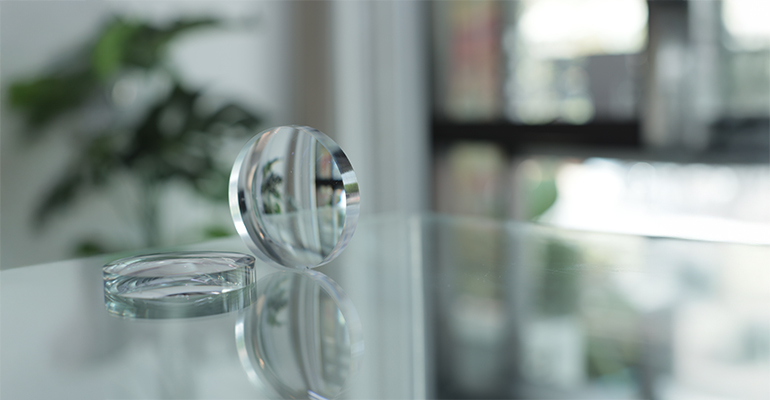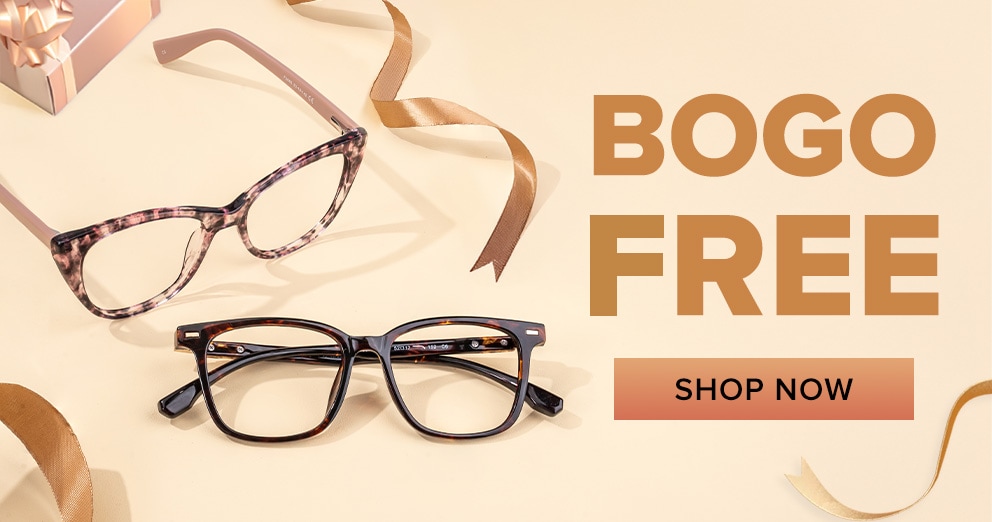Understanding Lens Materials for Glasses: A Comprehensive Guide
Jan 09, 2025

Lens materials are an underrated factor when choosing a new pair of glasses.
The materials of your lenses can affect the comfort, visual clarity, feel, and overall experience of wearing your glasses.
Let’s discuss the different lens materials below, to help you make an informed choice to get the right pair of glasses for your needs.
What Are Glasses Lenses Made Of?
The majority of lenses are made from materials such as glass, plastic (CR-39), polycarbonate, resin, and Trivex.
Every material has its pros and cons according to your needs which will be discussed.
Glass Lenses
Glass lenses are one of the most common materials used to correct vision since they have optical clarity and are scratch-resistant. The dense material provides great UV protection.
The biggest drawback with glass lenses is that they are heavy which can make them more prone to breakage if you accidentally drop them.
Plastic (CR-39) Lenses
CR-39 is the most common plastic polymer lens material. It offers excellent optics while also being cost-effective, making it a great budget lens.
This plastic lens can block out 80% of ultraviolet light without any treatment and can be tinted or coated for further UV protection, making them more customizable than glass for example.
It's also 50% lighter than glass, making it ideal for people who want lightweight glasses.
This material is prone to scratches but you can get scratch-resistant coatings to help with this.
Polycarbonate Lenses
Polycarbonate lenses are extremely lightweight and impact-resistant, made of the same material used for bulletproof glass. This makes them ideal for active individuals who play a lot of sports or for children's glasses and safety glasses.
These lenses offer 100% UV protection and are thinner than glass and plastic lenses, making them beneficial for stronger prescriptions.
Trivex Lenses
Trivex lenses have superior impact resistance and block 100% UV just like polycarbonate.
They are the lightest lens material and have a higher Abbe value than polycarbonate, meaning less distortion.
These lenses are also more resistant to yellowing over time.
Resin Glasses
Resin glasses are the most common lens material used today, some of their advantages are -
It’s lightweight, making them very comfortable.
Strong impact resistance makes them less likely to break and safer.
Good light transmittance and are easy to reprocess to meet special needs.
Some of its disadvantages are -
Prone to scratches and chemical corrosion resistance on the surface.
The high thermal expansion coefficient, poor heat conduction, and low softening temperature can cause deformation.

What Are Sunglasses Lens Material Made Of?
For sunglasses, the lens material used is important as it protects your eyes from harmful ultraviolet rays in all seasons.
Using high-quality materials offers other benefits too such as anti-reflective coatings, a variety of lens colors, and visual comfort without compromising style.
Do Polycarbonate Lenses Block UV?
Materials such as polycarbonate and Trivex are preferred as they can block 100% of UV rays and have a strong resistance to impact which is important for outdoor activities.
This makes these lenses an ideal choice for people who are sensitive to sunlight and need maximum eye protection.
Glass Lenses Vs Plastic
Glass Lenses
It’s well known that glass lenses provide exceptional optical clarity and are resistant to scratches, however, they are also heavy and easy to break, weighing at least twice the weight of plastic and polycarbonate lenses.
Glass lenses also have limited frame options since the weight of the glass makes them too heavy for rimless or semi-rimless frames.
Plastic Lenses
Plastic lenses like CR-39 are lighter than glass, more impact-resistant, and often more affordable. They are also great for everyday wear and can come in a variety of tints and treatments.
The downside to them is that they need a scratch-resistant coating for added durability.
High-Index Plastic Lenses
Glass lenses offer the highest visual clarity but high-index plastic lenses come second. These lenses are designed for people who need thinner and lighter lenses with strong prescriptions.
The refractive index ranges from 1.60 to 1.74 and the lenses offer the thinnest glasses possible with 100% UV protection and a lightweight.
That being said, these glasses can be very fragile and do require care when handling.
Glass Vs Polycarbonate Lenses
Glass Lenses
Glass lenses offer superior vision clarity against Polycarbonate and are more resistant to scratches, however, they will shatter under impact.
Polycarbonate
Unlike glass, Polycarbonate lenses have a high level of impact resistance, being 10 times more impact resistant than other lenses, and are lighter.
This means they offer better protection in high-impact situations but don’t give the same level of optical clarity as glass.
Polycarbonate lenses can scratch more easily and often require a hardening coating. Since they are made from high-quality materials, they are also more expensive.
These lenses might be best suited for safety glasses, unlike glass which is better for everyday usage.
Polycarbonate Lens Thickness
Polycarbonate lenses are 20% to 25% thinner than plastic or glass lenses and 10% thinner than Trivex lenses, another impact-resistant material.
The thinner profile makes these lenses more comfortable to wear and less visible which is ideal for people who don’t like bulky frames, especially for strong prescriptions.
Choosing Your Lens Material With GlassesShop
The lens material you choose for your glasses should be a personal decision based on your lifestyle, vision needs, aesthetics, and comfort.
At GlassesShop we offer a wide variety of lens materials to choose from to suit your needs, whether it's lenses for daily wear like glass, lenses for sports like polycarbonate or any specific prescriptions.
We have a buy one get one free BOGO deal on our glasses, a free home try-on service allowing you to order up to five pairs of glasses, and 50% off new arrivals.
There is also free shipping for orders over $69 and a 365-day guarantee for buyer's confidence!
